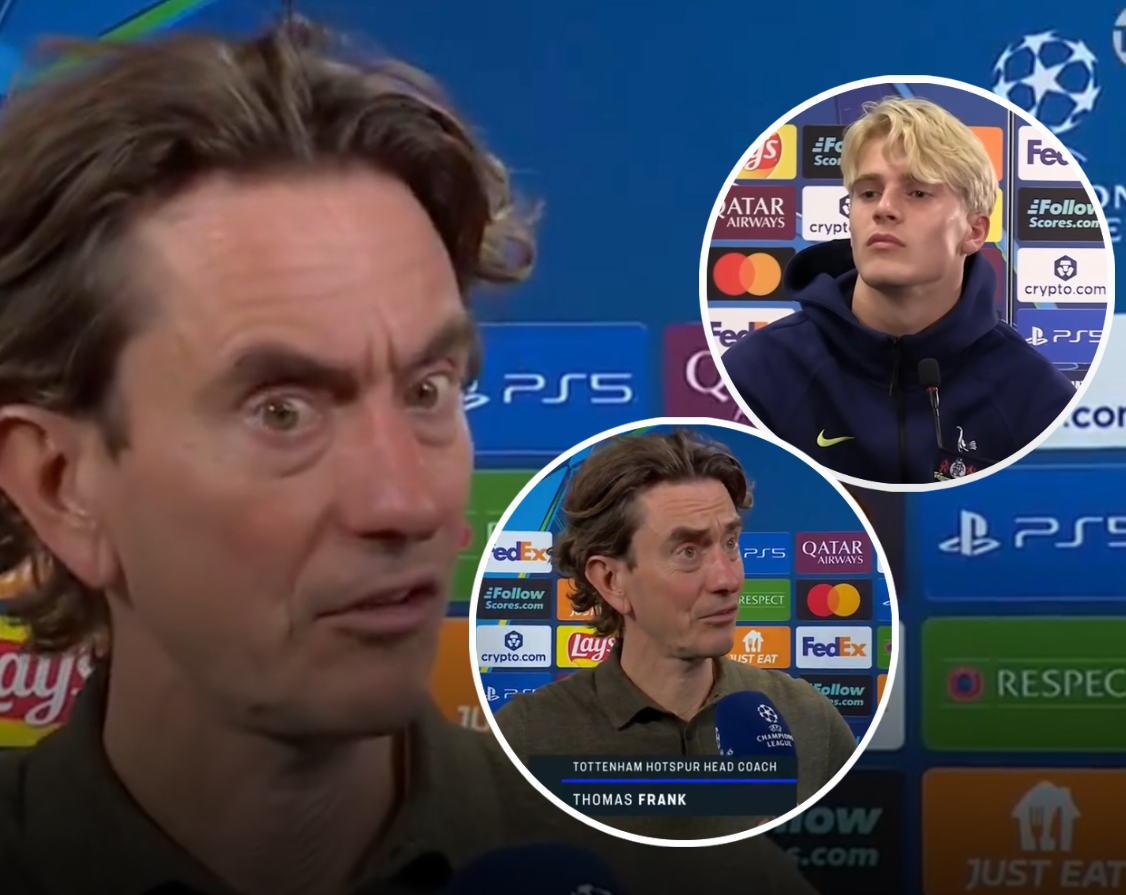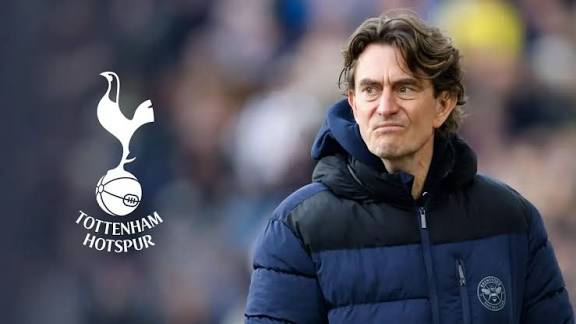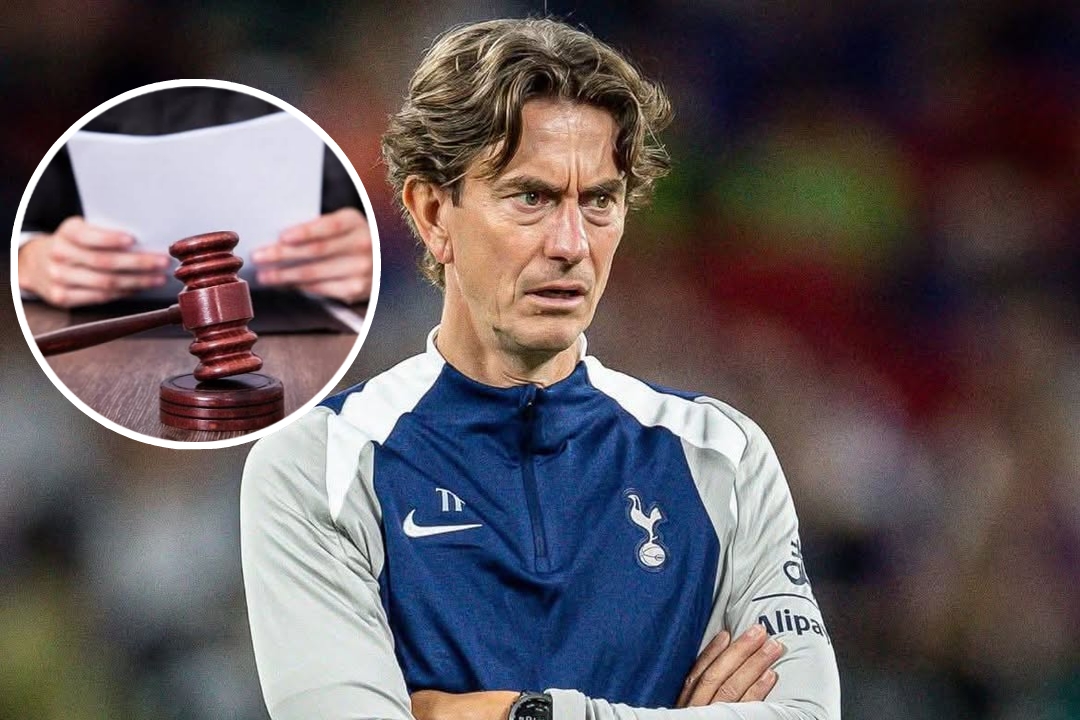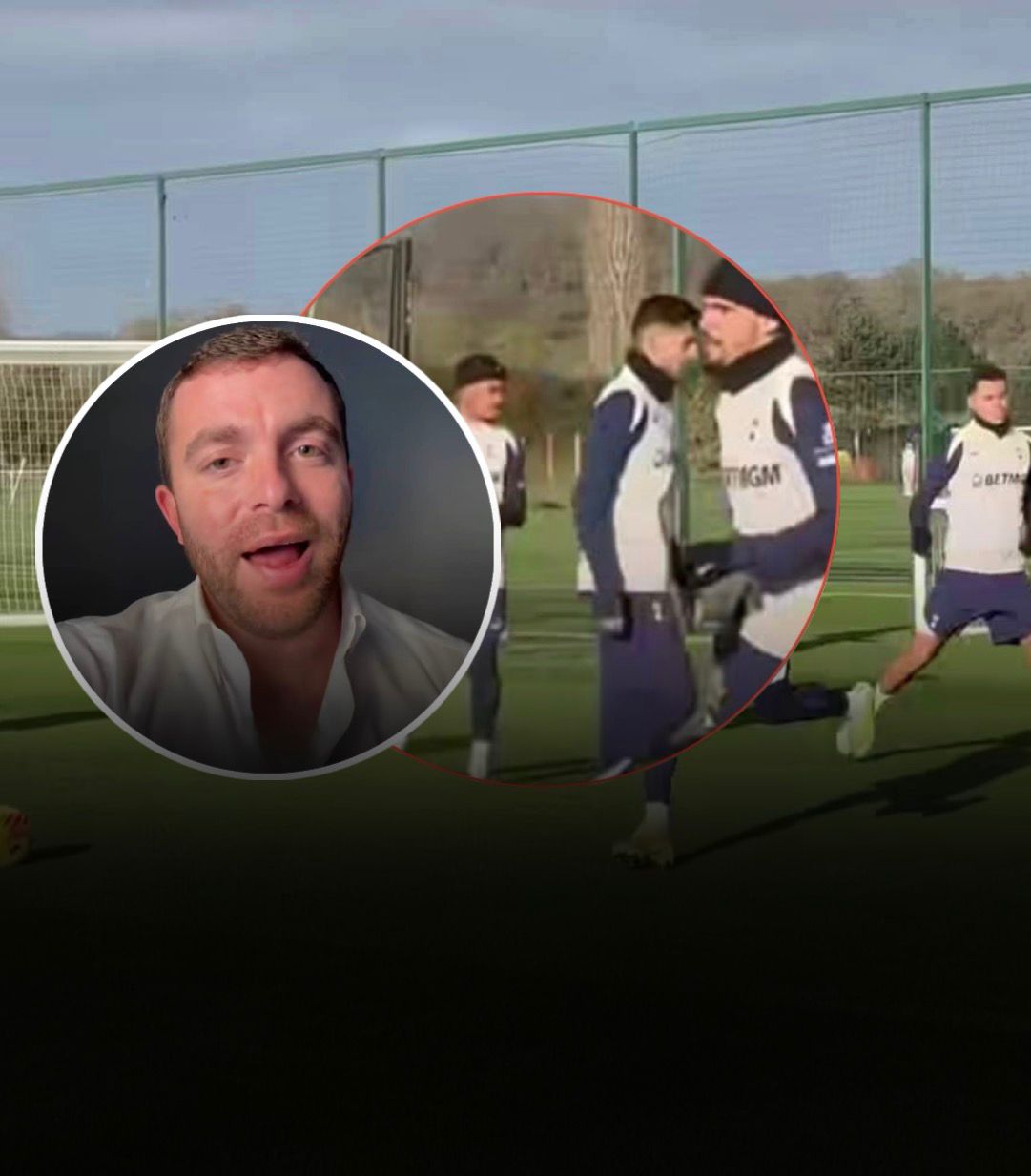ODD SLASHED ON THOMAS FRANK AS TOTTENHAM FANS ARE ALL SAYING THE SAME THING IMMEDIATELY AFTER WHAT HE SAID ABOUT LUCAS BERGVALL
Tottenham Hotspur salvaged a dramatic 2–2 draw at Bodø/Glimt in the Champions League, clawing back from two goals down to nick a point thanks to a nervy late own goal. On paper it looked like a rescue act; in reality, the performance and the post-match fallout have left a sizable split between the manager, a promising young midfielder and a large swathe of supporters who feel the wrong person is being criticised. The flashpoint? Thomas Frank’s public remarks about Lucas Bergvall, comments that many fans read as unfair and—depending on which timeline you follow—tone-deaf.
This piece unpacks the match, summarises Frank’s words, surveys the fan reaction (from forums to social media), and explores what this means for Bergvall’s development and Frank’s stewardship of Tottenham.
The match in brief — fortune, grit and obvious shortcomings
Tottenham arrived in the Arctic confident of securing all three points but found themselves 2–0 down to Jens Petter Hauge’s brace in the second half. Spurs’ route back into the game was scrappy: Micky van de Ven’s header reduced the deficit and a very late own goal gave Tottenham a highly fortunate equaliser. Overall, match reports emphasised Tottenham’s inability to assert control for long periods and suggested the draw was more a relief than a statement.
Journalists noted recurring issues — lack of midfield bite at times, moments of passive defending, and a general impression that the side had been fortunate rather than composed in their recovery. Headlines ran with the idea that Spurs “did little to deserve the point.”
What Thomas Frank actually said (and why it landed badly)
In his customary post-match media duties Frank offered praise for the team’s resilience but also made pointed remarks about individual and collective performances. While the full press conference is available on official channels and media outlets, the key takeaway from Frank’s comments — and the one that stirred controversy — was a critique of how certain players handled the match’s tactical demands and pressure moments. In some outlets Frank singled out aspects of the midfield’s passivity and a lack of consistent aggression in transition play; other sources paraphrased his comments as a critique of youngsters who hadn’t yet delivered the necessary vertical spark in the game.
Fans took particular exception when Frank’s words were interpreted as aimed at Lucas Bergvall, the 19-year-old Swedish midfielder whom Spurs have invested in and who has already been presented publicly as a high-upside signing. Bergvall had bright moments in the game — driving forward on occasions and showing glimpses of his technical quality — but also had periods where his influence waned. Frank’s comments, read by many supporters as public admonishment of a teenage talent, triggered immediate backlash. Reports and clips show Bergvall interviewed and appearing reflective, while Frank’s critique lingered in the press.
Fan reaction — social media, forums and the “same thing” chorus
Within minutes of the press conference and match reports surfacing, fan communities—Reddit threads, Twitter/X posts and club message boards—began to amplify a common theme: Frank was being too harsh on a young player and had misdirected criticism that should have been aimed at the team’s tactical approach or certain senior individuals. On r/coys and similar hubs the thread titles ranged from defensive to furious, with many supporters calling for Frank to protect his young players rather than publicly single them out. Some fans argued that Bergvall should be shielded while he adjusts to the demands of both the Premier League and European football.
Sports columnists and match analysts also joined the conversation, but with more measured language: they argued Frank may have been accurately diagnosing problems but could have chosen a more constructive forum for feedback. Outlets analysing the match flagged tactical vulnerabilities (for example, how Spurs coped when pressed and whether substitutions came soon enough), suggesting that tactical explanation would have been a more constructive critique than name-checking a teenager.
The player: Bergvall’s profile and where he is in his development
Putting Bergvall into context is crucial. At 19, he is still in the developmental phase where minutes, mentorship, and confidence matter. Coverage of the youngster emphasises his technical quality and potential ceiling; coaches and teammates have publicly praised his attitude and adaptability. Several profiles note that under Frank (and the coaching setup at Spurs), Bergvall has shown improvements and that this season is about incremental growth. That’s why fans bristled — they see public critique as a potential confidence drain on a player they feel should be nurtured.
Managerial intent vs. public optics
There are two possible readings of Frank’s approach. One: he gave a real, sobering assessment meant to light a fire in the squad and to set standards publicly — a veteran manager’s attempt at accountability. Two: he misjudged the optics of confronting a teenage talent in a public forum, which risks alienating a player and irritating a fanbase that wants to see club figures protect youth prospects.
Both readings have precedent in football. Transparency can build culture, but it can also be damaging if it undermines confidence. How Frank navigates the aftermath — private conversations with Bergvall, public reassurance, and tactical adjustments that demonstrate learning — will determine whether the episode becomes a footnote or a lingering problem.
What this means for Frank and Tottenham going forward
For Frank, the immediate task is damage control: balancing honesty about standards with a protective approach to youngsters who require careful management. If Bergvall responds with stronger performances and Frank is seen to support him publicly, the controversy will fade. If not, the narrative that Frank is quick to publicly chastise young players will stick and may widen the chasm between the manager and sections of the fanbase.
For Bergvall, this is a test of resilience. He has the technical tools and the coaching framework at Spurs to improve; what he needs now is consistent minutes, clear tactical instructions, and reinforcement rather than recrimination. The club’s handling of the situation — whether they stick by a long-term view or react to short-term pressure — will be revealing about Tottenham’s development pathway for young talents.
The bottom line
A 2–2 draw in the Arctic should be remembered for its drama and the quirks of Champions League football, not as an episode of managerial beef. Yet the story has become that because of how the post-match narrative was framed. Fans are unified not necessarily in their defence of Bergvall alone but in their insistence that young players deserve protection and that public critique should be used sparingly — particularly after a night where the team as a whole showed flaws.
Thomas Frank’s words may have been meant to sharpen rather than scar, but when you balance managerial candour against the fragile psychology of a teenager learning his trade, tone matters. The next few weeks — Bergvall’s performances, Frank’s media posture, and Tottenham’s results — will decide whether this blows over or becomes a longer-running subplot in a season where patience, tact and results all count.
Sources & further reading: Reuters match report; The Guardian match report; Evening Standard analysis; Spurs-Web and Vavel features on Bergvall; club and UEFA press conference clips.








Post Comment